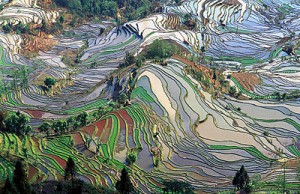Watts, Michael J. “The Sinister Political Life of Community: Economies of Violence and Governable Spaces in the Niger Delta, Nigeria.” Creed, Gerald. The Seductions of Community: Emancipations, Oppressions, Quandaries. Santa Fe, NM: School of American Research Press.
Community is often posed as the warm, wholesome antithesis of the anonymous cold, monster of the state. In this sense, community is often the synonymous, roseate alibi of “civil society.” Michael Watts wants to present the more sinister face of community, its antinomies that he sees as “tightly bound up with capitalism and the operations of the market place as they are with and governance” (103). They are always political and represented and should be “read against the history of the modern state. Communities demand visibility, legibility, and enumeration as preconditions for claims-making and thereby for their entry into the modern universe of the political” (102). Continue reading



